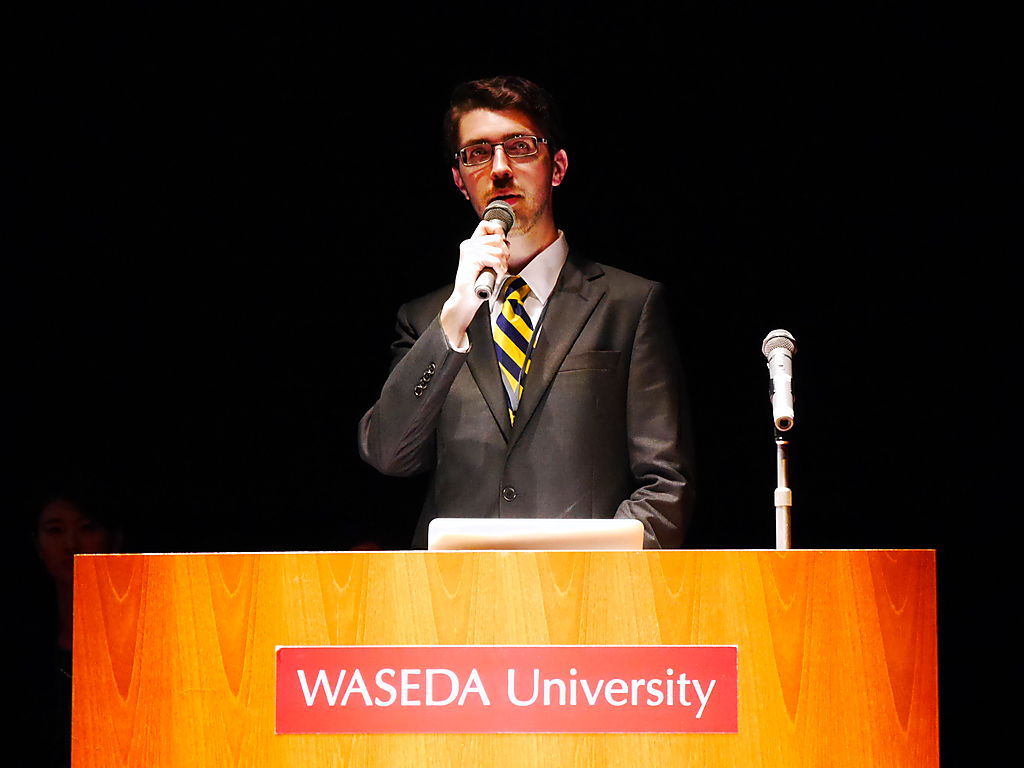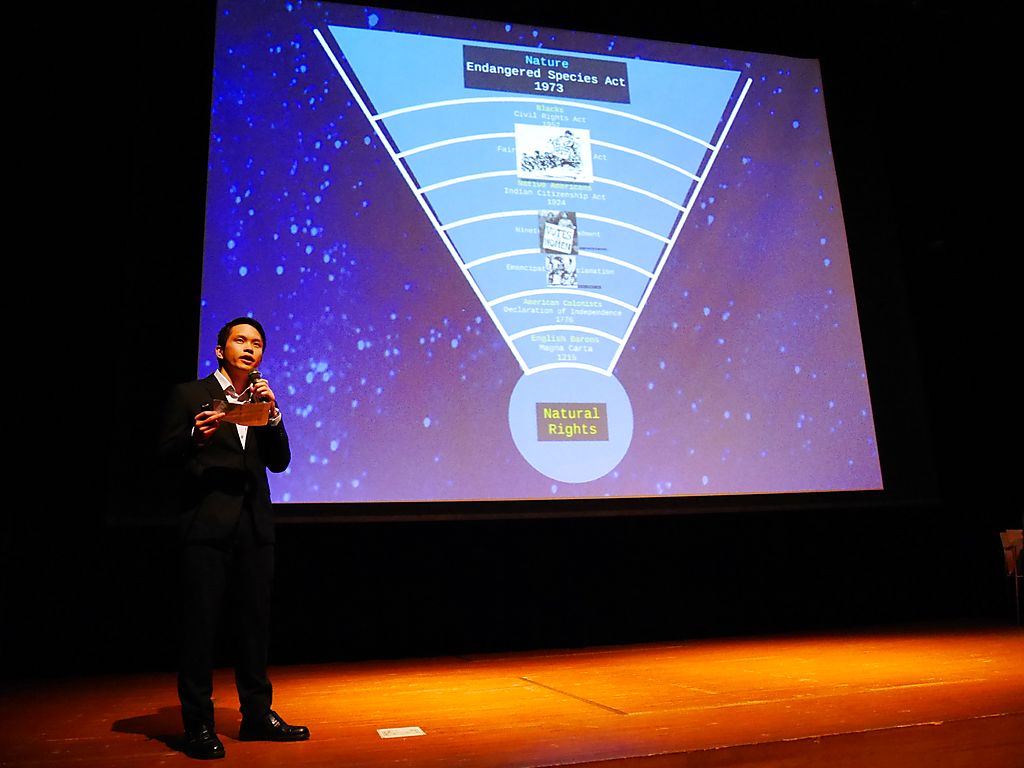Global Leadership Fellows on the environmental crisis
Mon, Jun 22, 2015-
Tags
On June 19, fellows from the Global Leadership Fellows Program (GLFP), a collaborative exchange program bringing together students from Waseda and leading American Universities, gave research presentations on a variety of environmental issues. The presentations are a culmination of one year of research in the GLFP Forum where students formed groups to tackle pressing environmental issues and come up with potential solutions. The five groups gave presentations on communication breakdowns during the Fukushima nuclear crisis, water resource management on the Yellow River, green city development, the exportation of Japan’s earthquake response measures, and the historical significance of the environmental crisis.

Delaney Lake from the University of Washington discusses communication breakdowns during the Fukushima nuclear crisis
Following opening remarks from Waseda Vice President and Professor Norimasa Morita and an overview of GLFP and the Forum by Professor Paul Watt, the first group of students presented on communication breakdowns using the Fukushima nuclear crisis as a case study. The group examined the breakdown in communication between the government, TEPCO, and civil society and how this led to instances of misinformation among domestic and international media outlets and a lack of information among the general public. During their research, the group had the opportunity to visit TEPCO and speak to representatives regarding disaster response measures and plans going forward. The group emphasized the importance of transparency among the main pillars of society, condemning the Special Secrecy Law proposed by Prime Minister Shinzo Abe and approved in 2013. Social media and new innovations such as portable Geiger counters were also highlighted as ways for people to stay informed and spread information.
The second group presented on Integrated Water Resource Management (IWRM) and how it can be used to solve the water crisis facing China’s Yellow River and the urban population and ecosystems that depend on it. The group discussed the Chinese government’s struggles in implementing such a system due to a lack of coordination between national, regional, and local levels of government and how IWRM can provide institutional solutions that benefit water efficiency within existing environmental, technological, and economic constraints.

Nicholas Ornstein from UC Berkeley presents on Integrated Water Resource Management
Using Los Angeles and Tokyo as a comparison study, the third group presented on the concept of “green cities” and transit-oriented development. The group analyzed the differences between existing development patterns in Los Angeles and Tokyo, and explained how Los Angeles could potentially incorporate aspects of the Japanese “Tokyu” model, such as compact development, dense rail connections, mixued-use housing, and partnership among the public and private sector. The group hopes incorporation of transit-oriented development in Los-Angeles will form a trans-national partnership between Japan and the United States.
The fourth group discussed Japan’s position as a global leader in earthquake disaster management and how its experience and innovations allow it to export its response measures to other earthquake prone or stricken areas. The group began their presentation by tracing the history of major Japanese earthquakes and trends in innovation, and creating a “Japan Model” to export successes. By proposing new technologies such as an internet-emitting balloon system inspired by Google Loon, the group showed how the “Japan Model” can be used to export new successes and provide invaluable technology to disaster stricken areas.

Presenters answered questions from the audience following each presentation
The final group examined the environmental crisis from a historical perspective, looking at the historical processes that have led to climate change, diminishing biodiversity, and degrading ecological integrity. Modernism, capitalism, and their ecological and material legacy were thoroughly discussed in order to understand people’s outlooks and expand our moral compass to include an “Earth ethic.”

Waseda student Keita Ito sheds light on the historical context of the environmental crisis

Following the presentations, students, professors, staff, and guests attended a reception where they were able to continue their discussion while enjoying food and drinks with their colleagues.

The student research presentations were collaborative efforts between Waseda, Georgetown University, University of Washington, UC Berkeley, and Columbia University students
The Global Leadership Fellows Program (GLFP)
The GLFP is a four year program for training future global leaders. The program accepts fifteen first year students every year who study abroad at prestigious American universities such as Columbia University and after returning to Waseda, participate in seminars with American exchange students focused on resolving global issues.














